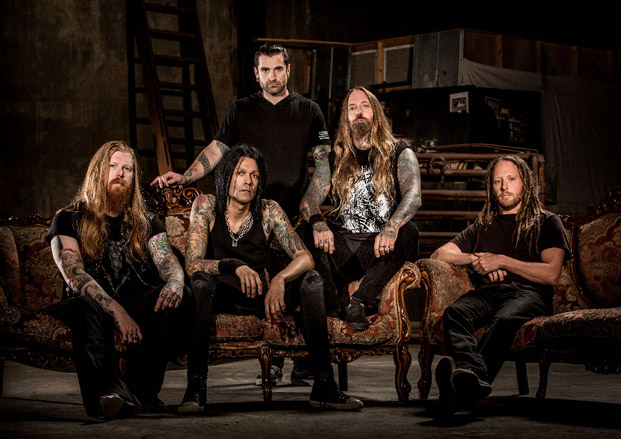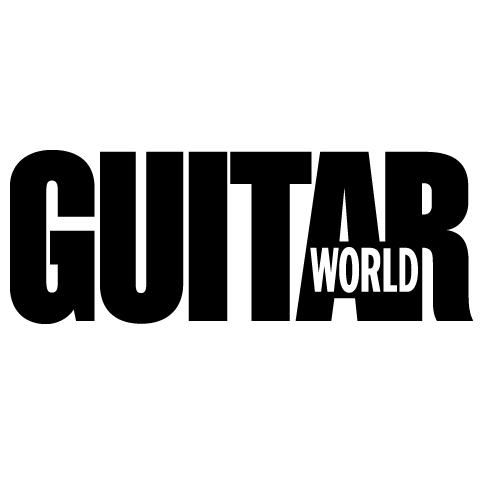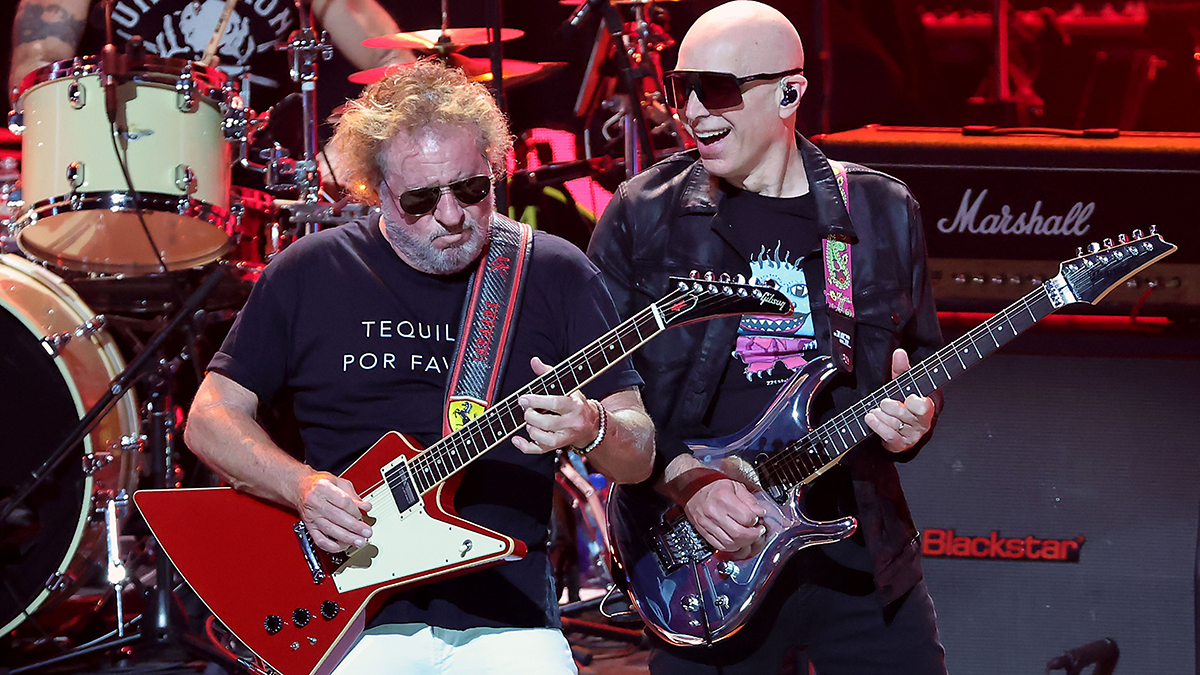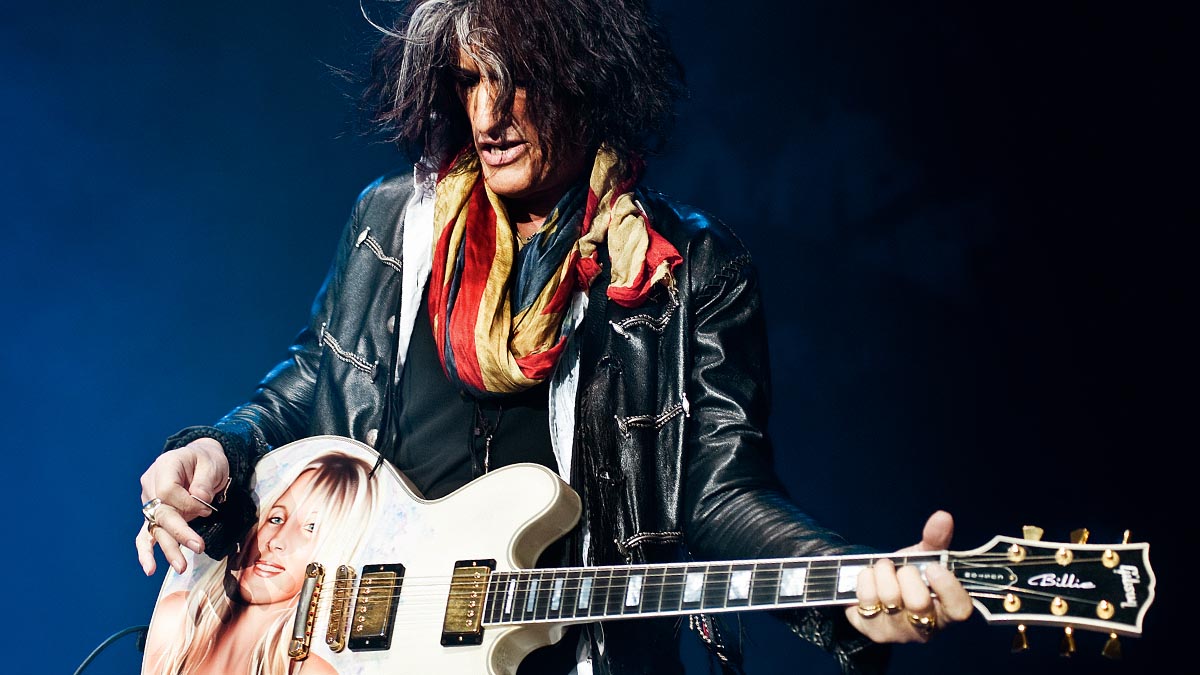10 Questions with DevilDriver's Mike Spreitzer and Neal Tiemann

We recently tracked down DevilDriver guitarists Mike Spreitzer and Neal Tiemann and gave them the "10 questions" treatment. It went a little something like this.
1. DevilDriver's new album, Trust No One, comes out Friday, May 13, via Napalm Records. What can you tell us about the writing process?
SPREITZER: I started working on the album on my own roughly six to eight months before Austin and Neal came on board. Once they were in the band we spent a massive amount of time writing in my studio in Torrance, California. We worked on songs for another year after they joined and slowly sent the demos to Dez and our producer Mark as we finished them. We had roughly 20 songs and eventually narrowed it down to 13 tracks. One of which didn’t make the final cut.
TIEMANN: The writing process was really a compartmentalized collaboration. Usually Austin, Mike and I would start with a collection of riffs and flesh everything out in Mike's studio in Torrance. Then we shipped everything off to Dez to finish up the vocals.
2. With the recent addition of Neal to the band, how has the dynamic changed between guitarists in terms of songwriting?
SPREITZER: The dynamic has never been better with Neal in the band. He’s a great player that I've learned a lot from and will continue to learn from over time. He and I spent a great deal of time jamming together before we started touring. He’s a great fit.
3. What kind of gear did you use on the new record?
Get The Pick Newsletter
All the latest guitar news, interviews, lessons, reviews, deals and more, direct to your inbox!
SPREITZER: The main guitar tone on the record comes from an ESP Eclipse loaded with Bareknuckle Aftermaths. We used a bunch of different guitars on the record—mostly ESPs, a Gibson V and a G&L JB bass. Almost all of the overdubs and synth-like tones were created using the Fractal Axe FX.
TIEMANN: Gibson Les Paul Standard and a G&L JB bass. Amp-wise, some tones were kept from Mike's Fractal, but everything was re-amped through a driftwood nightmare, a modded Marshall JCM 800.
4. How did the single "Daybreak" come about?
SPREITZER: “Daybreak” was one of the songs Neal brought to the table and was the first piece of music we collaborated on. We originally tried to record in with a seven-string tuned to drop-A but eventually re-recorded it in drop-C
TIEMANN: I wrote the music bed for “Daybreak” two years ago. I must've been drinking Jack Daniels, because whiskey makes me tap more.
5. What's your favorite song from the record to perform live?
SPREITZER: So far we’ve played only “Daybreak” and “My Night Sky” live. Both are super fun to play. I’m personally looking forward to adding “Testimony of Truth” and “For What It’s Worth” to the set.
TIEMANN: We've played only two so far, but "My Night Sky" seems to be going over really well with the crowd.
6. DevilDriver will be touring the world this spring and summer. What's your live setup like, and how does it differ from your studio rig?
SPREITZER: It’s basically the same as in the studio: Fractal Axe FX utilizing the Friedman BE-100 amp sim. I use my Axe FX for almost everything. We used a Kemper to record the guitars and our producer Mark Lewis reamped everything with a Driftwood Purple Nightmare before he started mixing. I use a lot of Soundtoys and Steven Slate plugins in the studio.
TIEMANN: My live rig consists of two custom Dunable R2's with EMG's (one equipped with 81/85, the other with 81/60). I run these into a Catalinbread Katzenkonig and Echorec, a JHS Kilt, an Alexander Radical Delay, a Mr. Black Supermoon chrome and Eterna gold mod. The signal then goes into a Kemper powered by an isp stealth. My rhythm sound is a modded Marshall JCM 800; my clean is a profile of my 1959rr Marshall, and my lead is a profile of my Soldano SLO100.
7. How did you get started playing guitar, and how does your work in DevilDriver differ from previous bands?
SPREITZER: I started playing when I was 10. Def Leppard was the first band that made me want to be a musician, but Metallica, Alice in Chains, Megadeth and Pantera were the bands that became some of my main influences.
TIEMANN: I started playing guitar after hearing Nirvana on the radio. Although I'm not the biggest fan today, they started me on my path. DevilDriver is unequivocally the heaviest and fastest music I've ever played.
8. What's your most prized piece of gear and why?
SPREITZER: Probably my white custom ESP V. It plays beautifully, sounds great and looks killer.
TIEMANN: My most prized piece of gear is my white Dunable R2. It's the finest guitar I've ever played.
9. What currently active guitarists inspire you?
SPREITZER: Jerry Cantrell has been a big influence for many years. A more recent pick would be the guys from Gojira.
TIEMANN: Mateus Asato is the only "new" guitarist who inspires me.
10. Are there any records that helped shape and influence your style?
SPREITZER: Antichrist Superstar by Marilyn Manson is, by far, my favorite record, but it doesn’t play a huge role in terms of my style. I would say And Justice for All by Metallica and Dirt by Alice in Chains are two of my biggest influences. I listen to so many different types of music that it’s hard for me to narrow it down.
TIEMANN: Diary of a Madman by Ozzy Osbourne, Cowboys from Hell by Pantera and Dark Side of the Moon by Pink Floyd.
For more about DevilDriver, check out devildriver.com.
Since 1980, Guitar World has been the ultimate resource for guitarists. Whether you want to learn the techniques employed by your guitar heroes, read about their latest projects or simply need to know which guitar is the right one to buy, Guitar World is the place to look.
“Imagine the roaring intensity of Meshuggah’s live performances echoing through your rig”: Meshuggah’s world-ending guitar tones are now available in a signature pedal
Green Day’s Billie Joe Armstrong tackles one of Randy Rhoads’ most iconic solos – tapping and all – in live cover of Ozzy Osbourne’s Crazy Train











